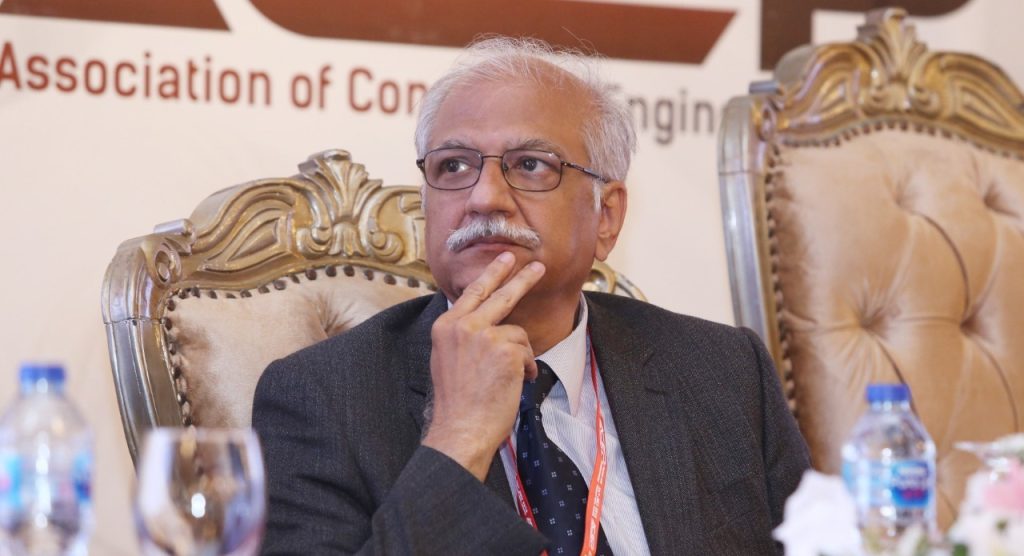ECIL chief says Pakistan needs very serious reform on how we will survive and govern the ungovernable.

Pakistan’s Economic Scenario
Looking at Pakistan’s affairs from 1947 to 1970, the country’s human resource quality and growth rate were impressive. There were policies and mechanisms for implementation under which the planning process took place and businesses were established. Since all these things were planned, the growth rate was better. We used to have 5-year and 10-year plans designed by the Planning Commission. The companies were well informed of such plans and used to start preparations, focusing on their shortcomings in areas like improving the quality of human resources, etc. If we did not find that capability, universities would incorporate such courses into their curriculum that were required and encouraged graduate students who intended to study abroad to take subjects needed in the country. This is an integrated effort that is a must for any country.
However, if a country is running without a vision, it will end up in a situation like the one we have in Pakistan. We do not have any direction and are running the affairs on a short-term basis. Our governments, which also assume power for brief periods, focus on short-term objectives. If we want to develop the country, we require a long-term vision armed with compatible policies and implementation without interruptions. This process requires periodic reviews and modifications, keeping the real objective in sight. This is a serious shortcoming, and because of it, we are losing many things, of which the drain of human resources is the most serious. We have landed in a critical situation, and I don’t see a way out unless the affairs of the country are sorted out.
Recognition of the Real Problem
The real problem lies within us. We do not recognize our core issue, much like a patient who refuses to acknowledge their illness. For instance, in the recent impasse between Pakistan and the IMF, the latter insisted on controlling our expenses. We kept refusing to do so and instead talked about increasing them, which did not align with our revenues. The IMF did not ask for an increase in petrol prices or a raise in electricity tariffs or anything that would hurt the common people. The Fund only asked for expenditures to be in line with revenues. The government proposed closing unnecessary departments, many of which were politically motivated. But the issue is: what would you do with the employees of those departments? There are other related issues as well. In summary, we need very serious reform on how we will survive and govern the ungovernable.
Boom in the Middle East & Pakistani Companies
The talk about the boom in the Middle East and other countries is true to some extent. The opportunities are connected to the perception of our country. Pakistani companies often work as subcontractors for foreign companies in these countries. You can earn if you work as a lead company, but you need technical qualifications and to meet the requirements of merit. Perception haunts Pakistani companies abroad. This needs to change, and we should target niche markets to be successful.
All major engineering companies are capable of working abroad. They can perform very well provided they meet stringent financial criteria and establish their credibility. Pakistani companies must compete with European companies, which have an edge due to the support they get from their countrymen who serve as advisors in these countries.
Support Structure
To begin with, we need to implement laws in our country. We have serious issues when it comes to execution. For instance, the joint venture formula is provided in the PEC Act, but it does not come into force in practical terms. The tragedy in CPEC was that we gave exemptions to Chinese companies. Not only did we, as Pakistanis, lose, but also our professionals and companies lost everything. It was observed that some Chinese contractors were of much lower standards than Pakistani contractors.
Need for a Policy Shift
First of all, we need to frame a policy under which we should export our companies rather than individual professionals. We should support every kind of firm to set foot in foreign countries. It will also benefit our professionals who work with foreign companies for lower salary packages. If we pitch our companies, a cream of our professionals would have opportunities in a better way. I do not have any doubt that Pakistani companies can compete with Western companies in the Middle East. Then we will no longer beg to export our labor; instead, we will export our companies. The government may open an “Axim-like” bank to facilitate Pakistani companies and provide guarantees for big projects in foreign countries.
What’s New About ECIL
Today, skills matter. Professionals with new skills and armed with new technologies possess value; it is a must for project handling. We focus on incorporating newer technologies and young, skilled people into our company. We need to determine what kind of technologies we need to bring improvement in every aspect of our work.
Role of Universities
I believe universities should move ahead in the research side. There are many technologies that can enhance the quality of concrete. For instance, new technologies are being applied in the Middle East, where the strength of concrete is three to four times higher than in Pakistan. They must be using new technologies for sure. Thus, universities must work in this direction. — MS
